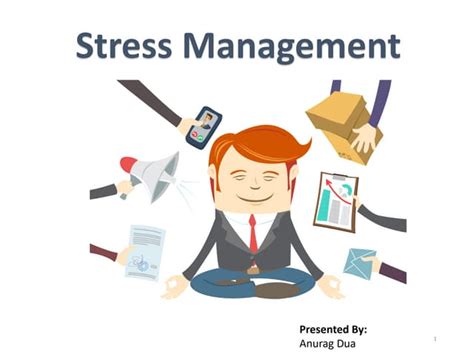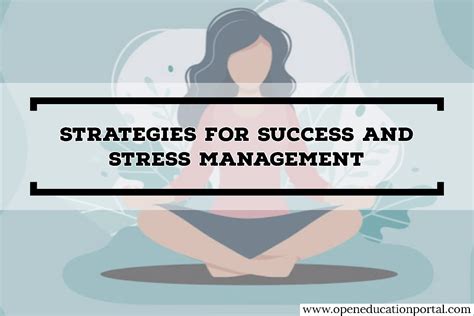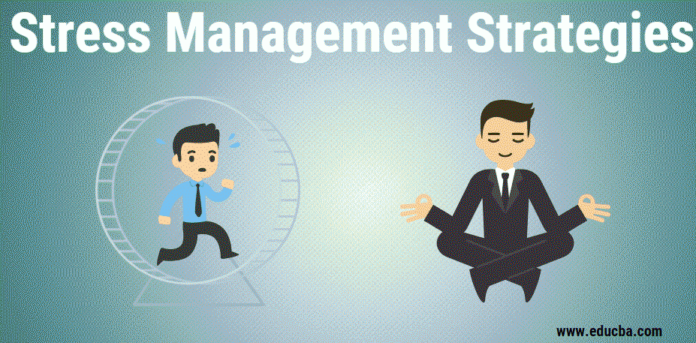In today’s fast-paced world, managing stress has become an essential skill for maintaining both mental and physical well-being. Stress can arise from various sources and, if left unmanaged, can significantly impact our health and quality of life. Understanding the nature of stress and its causes is the first step towards effective management. This article explores the concept of stress, its common triggers, and the profound effects it can have on our overall health. We will delve into practical strategies for managing stress, adopting healthy lifestyle habits, and recognizing when to seek professional help. By equipping ourselves with these skills, we can navigate life’s challenges more effectively and enhance our well-being.
Join rosawblog.com for a detailed examination of this topic.
1. Introduction
In today’s fast-paced world, stress is a widespread challenge impacting countless individuals. The demands of work, relationships, and daily responsibilities frequently lead to persistent pressure, causing both physical and mental strain. Recognizing the importance of managing stress is vital for maintaining overall health and well-being. Effective stress management not only helps reduce the negative consequences of stress but also enhances our ability to cope with life’s pressures more effectively.
The initial step in managing stress lies in comprehending its nature. Stress can arise from numerous sources, such as work-related pressures, family responsibilities, and personal challenges. It presents itself in various ways, impacting both our mental and physical well-being. If disregarded, stress can result in a spectrum of health problems, ranging from anxiety and depression to cardiovascular issues.
This article aims to provide valuable insights into stress management strategies that can empower individuals to better navigate life’s demands. We will delve into the causes of stress, its impact on health, and effective techniques for managing it. Furthermore, we will explore the significance of adopting a healthy lifestyle and when seeking professional help is crucial. By integrating these strategies and skills, individuals can foster greater resilience and enhance their overall quality of life.

2. Understanding stress
Stress is a natural reaction to the demands and pressures of life. It sets off a series of physical and mental changes in the body, commonly known as the “fight or flight” response. When confronted with a stressful situation, the body releases hormones like adrenaline and cortisol, which equip us to meet the challenge. This reaction can be helpful in short bursts, but prolonged stress can result in serious health problems.
Stress comes in two main forms: acute and chronic. Acute stress, a short-term response to specific events like meeting deadlines or preparing for presentations, is generally manageable and fades once the stressful situation passes. Chronic stress, however, is a prolonged state resulting from ongoing pressures like work challenges or relationship issues. This persistent stress can have significant negative impacts on both mental and physical health.
To grasp the concept of stress, one must acknowledge its origins and its consequences. Stressors can stem from external sources like job pressures or financial burdens, or internal factors like self-imposed expectations or negative thought patterns. By identifying these stressors and comprehending their impact on us, we can embark on the journey of developing effective strategies to manage and minimize their effects.

3. Common causes of stress
Stress originates from diverse sources, frequently stemming from both external and internal influences. External factors commonly include work-related pressures, such as demanding deadlines, excessive workloads, and job uncertainty. Financial strain, including debt or unforeseen expenses, also significantly contributes to elevated stress levels. Interpersonal relationships, including conflicts with family, friends, or partners, can likewise be a substantial source of stress.
Internal factors, such as high self-expectations and perfectionism, are major contributors to stress. Individuals who set unrealistic standards for themselves often experience chronic pressure and dissatisfaction. Negative thought patterns, including excessive worrying or self-criticism, can intensify stress and make challenges feel more overwhelming.
Please provide the complete paragraph you would like me to rewrite. The provided text is incomplete, missing the end of the sentence.

4. Impact of stress on mental and physical health
Stress has a significant impact on both our mental and physical well-being. On a mental level, prolonged stress is associated with conditions like anxiety, depression, and increased irritability. It can also hinder cognitive functions such as memory and concentration, making everyday tasks more difficult. Furthermore, continuous stress can lead to emotional exhaustion and burnout, negatively affecting our overall quality of life.
Stress triggers the body’s “fight or flight” response, causing a surge in heart rate and blood pressure, while simultaneously weakening the immune system. This sustained state of heightened alert can, in the long run, contribute to severe health problems such as cardiovascular disease, gastrointestinal difficulties, and persistent pain. Additionally, stress can disrupt sleep patterns, leading to insomnia or poor sleep quality, further compounding health issues.
Recognizing the significant effects of stress highlights the crucial need for effective stress management strategies. By taking proactive steps to address stress, individuals can minimize its detrimental consequences and enhance both their physical and mental well-being.
5. Effective stress management techniques
Effective stress management techniques are crucial for enhancing well-being and resilience. One proven strategy involves mindfulness and meditation, which help individuals stay grounded and reduce anxiety by focusing on the present moment. Engaging in regular physical activity, such as walking, jogging, or yoga, can also effectively alleviate stress by releasing endorphins and boosting overall mood.
Deep breathing exercises provide another practical approach to stress management. Through controlled breathing, individuals can trigger the body’s relaxation response, alleviating the physical symptoms of stress. Additionally, effective time management is essential. Dividing tasks into manageable steps and prioritizing responsibilities can help mitigate feelings of being overwhelmed.
Engaging in hobbies and leisure activities offers a healthy escape from stressors, promoting relaxation and well-being. Equally important is cultivating a strong support network. Talking to friends, family, or a counselor can provide emotional support and practical advice, offering a valuable resource for navigating life’s challenges.
Finally, setting achievable goals and practicing self-compassion are crucial for managing expectations and reducing self-inflicted stress. By integrating these techniques into daily routines, one can significantly enhance
6. Healthy lifestyle habits for stress reduction
Adopting healthy lifestyle habits is essential for reducing stress and improving overall well-being. A balanced diet is particularly important. Consuming a variety of fruits, vegetables, whole grains, and lean proteins provides essential nutrients that support the body’s stress response and overall health. Reducing caffeine and sugar intake can also help stabilize mood and prevent stress-related fluctuations.
Regular physical exercise is another crucial element in managing stress. Activities like brisk walking, swimming, or cycling trigger the release of endorphins, natural mood boosters. To reap these benefits, aim for at least 30 minutes of moderate exercise on most days of the week.
Getting enough sleep is crucial for coping with stress. By sticking to a regular sleep schedule and making your sleep environment peaceful, you can improve your sleep quality and allow your body to recover from the day’s pressures.
Relaxation techniques, like progressive muscle relaxation or deep breathing, can help lower stress levels. By incorporating these practices into your daily life, you can enhance your body’s ability to manage stress more effectively.
In conclusion, strong social connections and meaningful relationships offer crucial emotional support and build resilience. Participating in social activities and spending quality time with loved ones can act as a buffer against the negative impacts of stress, promoting a healthier and more balanced life.
7. Seeking professional help
When stress becomes overwhelming or a persistent problem, seeking professional help is a crucial step. Mental health professionals, including psychologists, counselors, and therapists, can offer invaluable support and guidance in managing stress. They provide specialized techniques and strategies tailored to each individual’s needs, such as cognitive-behavioral therapy (CBT), which helps individuals identify and change negative thought patterns and develop effective coping skills.
Beyond therapy, healthcare providers can assess physical health and advise on treatments or lifestyle adjustments to manage stress-related symptoms. If stress is contributing to or worsening medical conditions, like high blood pressure or depression, medical intervention might be required.
Support groups provide a valuable resource for individuals facing similar challenges. By sharing experiences and insights, members can find comfort and understanding within a supportive community.
Knowing when to seek professional help is vital. Red flags that signal the need for intervention include persistent anxiety or sadness, difficulty handling daily tasks, and physical stress symptoms that don’t respond to self-care. Taking initiative and reaching out for help can empower you to manage stress effectively and improve your overall mental and physical well-being.
8. Conclusion
In conclusion, effective stress management is crucial for maintaining both mental and physical health. Recognizing the nature of stress and its common causes allows individuals to identify their own personal triggers. Utilizing effective stress management techniques, such as mindfulness, physical exercise, and time management, can significantly reduce stress levels and enhance overall well-being.
Stress reduction can be further enhanced by adopting healthy lifestyle habits. These include maintaining a balanced diet, engaging in regular exercise, and ensuring adequate sleep. Furthermore, when stress becomes overwhelming, seeking professional help is essential. This allows for tailored support and the addressing of underlying issues contributing to the stress.
Recognizing the significance of these strategies and incorporating them into daily life can enhance resilience and quality of life. By proactively managing stress, individuals can navigate life’s challenges more effectively and foster a healthier well-being.
rosawblog.com
